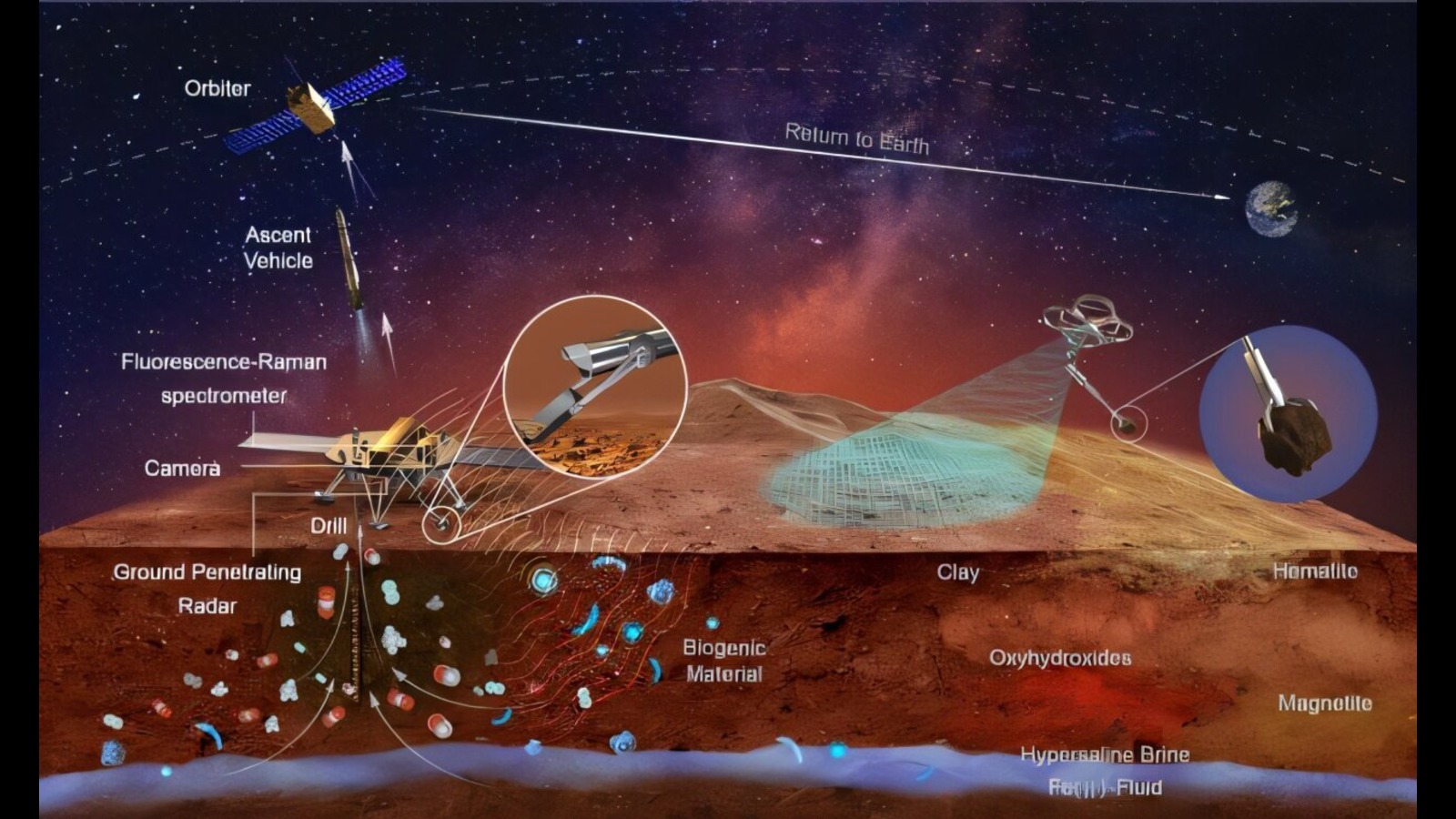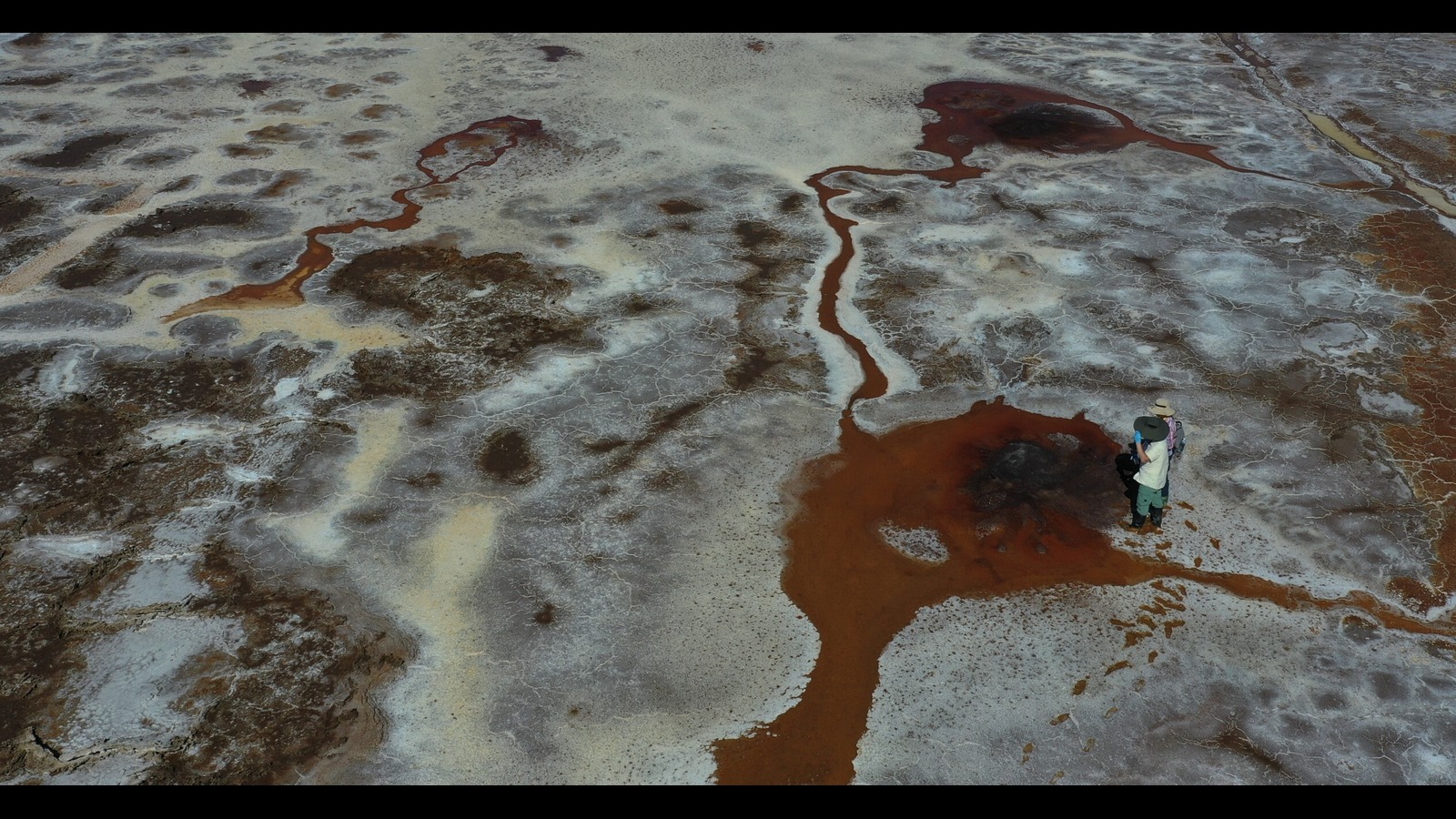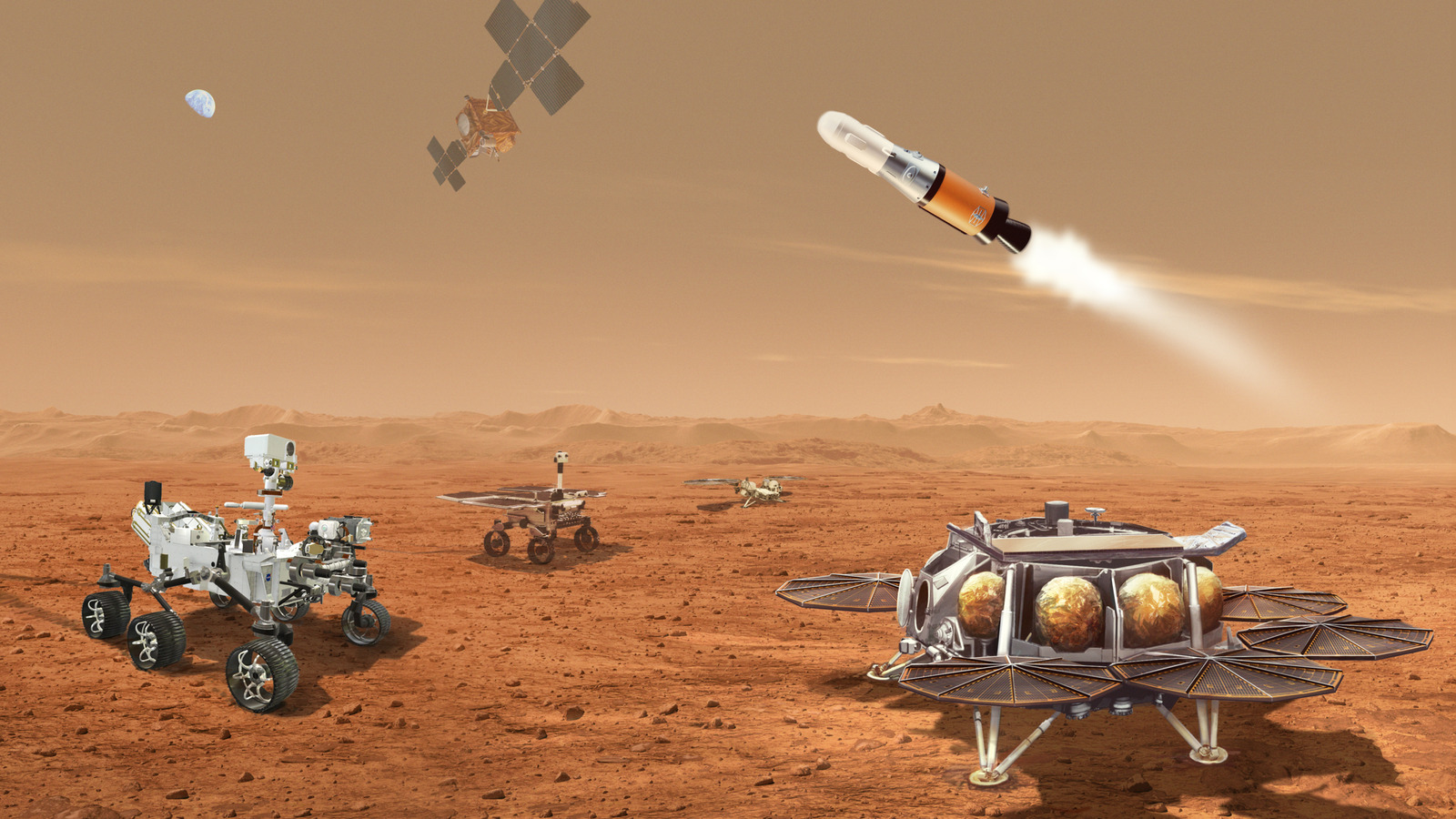Whereas NASA’s Mars Pattern Return initiative is in political scorching water, China is shifting forward on plotting out its rendezvous with the Purple Planet.
New particulars of China’s goals are rising. China’s intent is to haul again to Earth a Mars treasure trove or rock and soil by way of its Tianwen-3 mission. The plan requires launch of two boosters in 2028 in assist of their Mars Pattern Return (MSR), which may ship a minimum of a pound (500 grams) of the extraterrestrial goodies again to Earth round 2031. A drill mounted on China’s MSR lander would penetrate to a depth of 6.5 ft (2 meters) to gather a number of grams of subsurface samples, whereas a robotic arm will collect greater than 400 grams of the overseas floor materials from the touchdown web site. Apparently, additionally on the agenda is use of a robotic helicopter. This drone, outfitted with an arm, is to be deployed for rock sampling at places larger than 300 ft (over 100 meters) from the lander.
Simply how impactful their potential success could possibly be is now below dialogue inside the U.S. Given the worth of Mars samples, not only for science but in addition to bolster plans for future crewed missions to Mars, robotic return of bits and items of the planet is seen by many as obligatory.
The place to gather, what to gather, learn how to acquire, learn how to analyze
China’s closing choose of a touchdown zone will depend on a evaluate of 86 preliminary touchdown websites. The chosen web site will favor the emergence and preservation of proof of traces of life and detection of potential biosignatures within the returned samples, based on a current paper printed within the journal Nature Astronomy.
“The mission goals to offer insights into 9 scientific themes centered round the primary focus of the seek for extant and previous life on Mars,” explains lead writer, Zengqian Hou of the Institute of Deep House Sciences, Deep House Exploration Laboratory, in Hefei, China.
Zengqian and colleagues have outlined the place to gather, what to gather, learn how to acquire, and learn how to analyze these treasured Mars alternatives. “Gathering samples from Mars may present correct information on the indicators of life,” the analysis staff explains.

Energetic endeavor
Yiliang Li, a co-author of the Nature Astronomy paper, is an astrobiologist within the Earth sciences division on the College of Hong Kong (HKU). His function primarily entails main an HKU group that’s engaged on the number of the touchdown web site for the Tianwen-3 MSR mission.
In accordance with an HKU assertion, prime exploratory areas on Mars are these the place liquid water was probably current within the planet’s early historical past, areas wealthy in important metallic vitamins, and websites the place traces of Martian microbial exercise may probably be preserved for billions of years.
Within the meantime, the seek for promising sampling websites on Mars “stays an ongoing and lively endeavor,” the HKU assertion provides.

Sticker-shock price ticket
Right here in the US, the White Home launched President Trump’s 2026 Discretionary Funding Request that requires ending financially unsustainable applications – together with Mars Pattern Return.
“According to the Administration’s goals of returning to the Moon earlier than China and placing a person on Mars, the Price range would cut back decrease precedence analysis and terminate unaffordable missions such because the Mars Pattern Return mission that’s grossly overbudget and whose objectives can be achieved by human missions to Mars,” the doc says.
Certainly, over a number of years and a number of opinions of the joint NASA/European House Company MSR challenge there’s a sticker-shock price ticket; a final estimate was about $11 billion, with samples being returned to Earth in 2040.
MSR’s mission price was deemed too expensive and wouldn’t be achieved on a suitable time interval by NASA’s final, non-acting Administrator, Invoice Nelson.
Whereas techno-squabbles over MSR have been on-going, NASA’s Perseverance Mars rover has been doggedly on the hunt inside Jezero Crater. Since its landing in February 2021, the car-sized robotic has been obediently gathering rock samples throughout the martian panorama. A few of these sealed specimens might properly include indicators of previous life on the Purple Planet, and are deemed rocket-ready for pick-up and supply to Earth.

New area race
The White Home shutdown of the NASA/ESA MSR enterprise by way of the Trump funds “forfeits Mars Pattern Return to China,” declares a current episode of the favored Mars Man program, created by Steve Ruff, a number one planetary geologist at Arizona State College (ASU) in Tempe.
The President’s funds forfeits the best precedence planetary science purpose of MSR to China, however provided that the US Congress agrees, Ruff notes.
Within the interim, U.S. Senator Ted Cruz (R-Texas), Chairman of the Senate Committee on Commerce, Science, and Transportation, unveiled in early June his legislative directives for Senate Republicans’ funds reconciliation invoice, formed to beat China to Mars and the Moon.
It dedicates nearly $10 billion to win the brand new area race with China and guarantee America dominates area by making, for one, focused, essential investments in Mars-forward expertise.
Within the lawmaker’s directive, Cruz requires a Mars Telecommunications Orbiter, pegging $700 million for the industrial procurement of the dual-use orbiter. Its project is to deal with each a Mars Pattern Return mission to return core samples of Mars to Earth, in addition to future human Mars missions.

Prime, pre-selected specimens
But when China is on the MSR march to the Purple Planet and NASA is not, what about China returning already prime pre-selected specimens picked up by NASA’s Perseverance Rover nonetheless busily at work inside Jezero Crater?
“China’s mission in all probability will not have entry to comparably compelling samples as these collected by Perseverance due to engineering constraints that restrict the place it might land and the restricted mobility choices it would have,” Ruff explains.
“I do know from common feedback on my YouTube channel for Mars Man that there is a generally held view that the Chinese language can or will choose up the samples in Jezero crater. However this merely cannot occur given the engineering constraints of their Mars pattern return mission as publicly offered. That mission can have neither the touchdown precision nor mobility on the floor to get to both the pattern depot or to Perseverance,” Ruff instructed House.com. “So China isn’t going to save lots of the NASA/ESA MSR mission.”
Win-win cooperation?
Then again, China’s Zengqian and colleagues state that exploration of Mars is a collective endeavor for all of humanity, writing in Nature Astronomy:
“The Tianwen-3 mission is dedicated to win–win cooperation, harmonious coexistence and shared prosperity by worldwide cooperation. It actively seeks worldwide partnerships by numerous channels and at numerous ranges for joint scientific analysis, touchdown web site choice and scientific payload improvement and testing.”
Cooperation on MSR between the US and China, nonetheless, appears a little bit of a cube roll, mentioned Barry E. DiGregorio, founder and director of the Worldwide Committee Towards Mars Pattern Return primarily based in Burlington, Ontario, Canada.
Whereas China is inviting worldwide cooperation, current debates on tariffs between the 2 nations would appear to make the proposition tough to hammer out.
“Now could be the time to think about different choices similar to sending in-situ life detection devices to Mars to settle the difficulty of extant life,” DiGregorio instructed House.com.
“We should be certain what the subsequent section of Mars missions will likely be. With the continued push to get people to Mars, astronaut security ought to now take precedence and which means ensuring of biosafety considerations with any indigenous life varieties that is perhaps discovered,” mentioned DiGregorio.
Earthly considerations
Whereas China is poised to turn into the primary nation to return probably biologically lively planetary materials — together with potential life varieties — from past Earth, “the potential threat such substances may pose to terrestrial life, together with people, is a significant concern,” factors out Yiliang on the College of Hong Kong.
To arrest that nervousness China plans to assemble a specialised MSR facility on the outskirts of Hefei, the capital of Anhui, China. Inside that facility, freshly-returned samples from Mars would bear complete biochemical and pathological testing below strict isolation from the Earth’s surroundings.
“Solely after it’s conclusively decided that the samples include no lively organic brokers or substances that would threaten the Earth’s biosphere will they be launched to designated laboratories for in-depth scientific evaluation,” concludes the College of Hong Kong assertion.
Deep area ideas
The prospect of plucked collectibles to Earth for close-up inspection in state-of-the-art amenities is now actually “up for grabs” — however by what nation?
As voiced in a June 23 draft of candidate findings, statements of assist/concern by the Mars Exploration Program Evaluation Group (MEPAG), a community-based, interdisciplinary discussion board:
“Bold, first-of-their-kind missions like MSR include challenges however NASA’s historical past of success in tough endeavors is what makes the US the worldwide chief in deep area exploration,” the doc states. “Returning the scientifically chosen samples that await us on Mars, as a part of a balanced portfolio, will assist to make sure the US doesn’t cede management in deep area to different nations, similar to China.”

